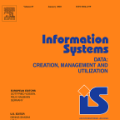Identifying the diverse and often competing values of citizens, and resolving the consequent public value conflicts, are of significant importance for inclusive and integrated urban development. Scholars have highlighted that relational, value-laden urban space gives rise to many diverse conflicts that vary both spatially and temporally. Although notions of public value conflicts have been conceived in theory, there are very few empirical studies that identify such values and their conflicts in urban space. Building on public value theory and using a case-study mixed-methods approach, this paper proposes a new approach to empirically investigate public value conflicts in urban space. Using unstructured participatory data of 4,528 citizen contributions from a Public Participation Geographic Information Systems in Hamburg, Germany, natural language processing and spatial clustering techniques are used to identify areas of potential value conflicts. Four expert workshops assess and interpret these quantitative findings. Integrating both quantitative and qualitative results, 19 general public values and a total of 9 archetypical conflicts are identified. On the basis of these results, this paper proposes a new conceptual tool of Public Value Spheres that extends the theoretical notion of public-value conflicts and helps to further account for the value-laden nature of urban space.
翻译:学者们强调,具有相关价值的城市空间在空间上和时间上都会产生许多不同的冲突。虽然在理论上设想了公共价值冲突的概念,但很少有经验研究能够确定这些价值及其在城市空间的冲突。根据公共价值理论并采用案例研究混合方法,本文件提出了一种新的方法,以经验方式调查城市空间公共价值冲突。利用德国汉堡公众参与地理信息系统提供的4 528个非结构化参与数据,利用自然语言处理和空间集群技术来确定潜在价值冲突的领域。四个专家讲习班评估和解释这些定量结论。将定量和定性结果结合起来,确定了19个一般公共价值和总共9个典型冲突。根据这些结果,本文件提出了一个新的公共价值空间概念工具,扩展了公共价值冲突的理论概念,并有助于进一步说明城市空间的价值。



